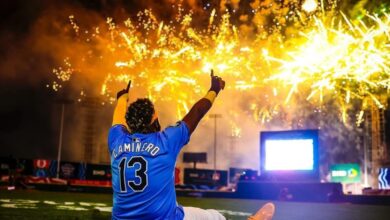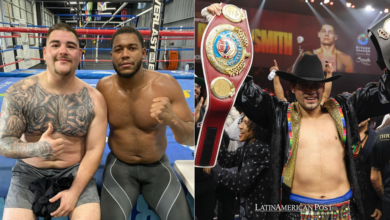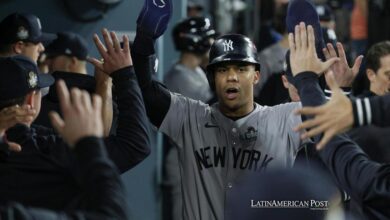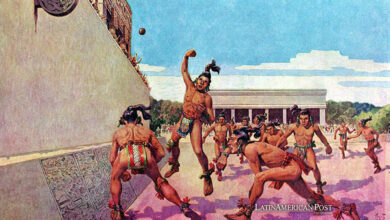Ozzie Virgil Sr.: Pioneering the Path for Dominican MLB Stars
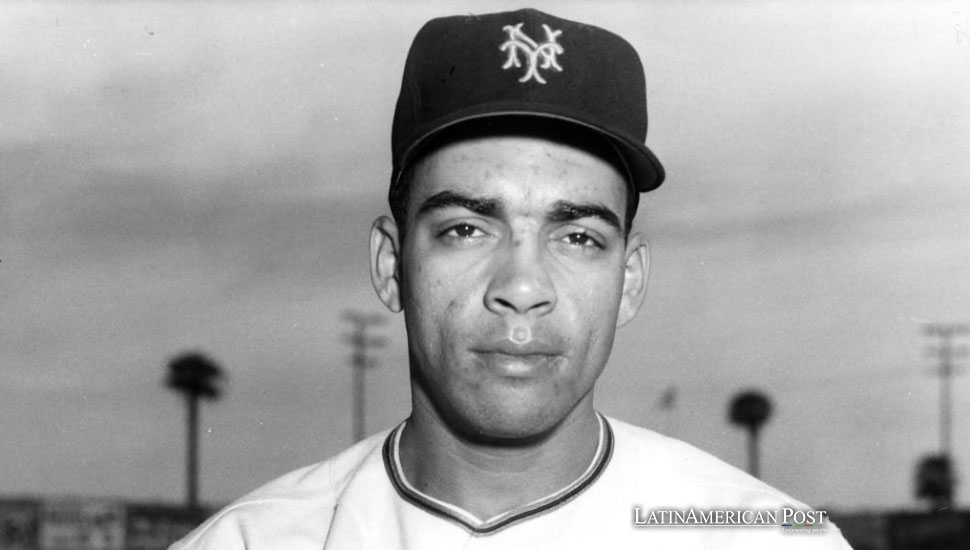
Ozzie Virgil Sr., the first Dominican-born player to break into Major League Baseball, left a legacy that opened doors for countless Latin American athletes. His groundbreaking career paved the way for the success of Dominican players in the MLB, shaping the sport’s history.
Ozzie Virgil Sr. As Groundbreaking Trailblazer
Ozzie Virgil Sr., born Osvaldo Virgil in Monte Cristi, Dominican Republic, symbolized perseverance and determination when he became the first Dominican-born player in Major League Baseball (MLB). His passing at the age of 92 marks the end of an era, but his legacy endures as one that forever changed the landscape of baseball. On September 23, 1956, Virgil took to the field for the New York Giants, making history and blazing a trail for the Dominican players who would follow in his footsteps.
Virgil’s journey to the major leagues was not an easy one. After emigrating to the Bronx with his family, he navigated the challenges of a new country and a sport that, at the time, offered few opportunities for Latino players. A high school graduate in New York and a Marine Corps veteran, Virgil began his baseball career in the minor leagues in 1953. By 1956, his persistence and talent earned him a spot in the majors, where he played primarily at third base but was versatile enough to cover almost every position on the field.
During his nine seasons in MLB, Virgil became more than just a talented player—he became a symbol of what was possible for Dominican and Latin players in a sport still grappling with integration and acceptance of non-white athletes. His legacy goes beyond his stats, which included a .231 batting average, 14 home runs, and 324 games played. His presence broke barriers, proving that Dominican players could compete and thrive in the world’s top baseball league.
Virgil’s contributions weren’t limited to his time as a player. After retiring, he dedicated nearly two decades to coaching, helping to mentor future generations of players. His influence, especially as a coach for teams like the Giants, Expos, Padres, and Mariners, stretched across multiple MLB clubs, making him a fixture in baseball long after his playing days ended.
Dominican Players in MLB: A Rising Force
Ozzie Virgil’s impact is inseparable from the larger story of Dominican players in MLB, whose influence on the sport has only grown since Virgil’s debut. Today, the Dominican Republic is recognized as a baseball powerhouse, producing some of the best talent the game has ever seen. From Hall of Famers like Pedro Martínez and Vladimir Guerrero to modern stars like Juan Soto and Fernando Tatis Jr., Dominican players have become integral to the success of Major League Baseball.
The pipeline of talent from the Dominican Republic to MLB is now robust, with players like David Ortiz, Robinson Canó, and Manny Ramírez becoming household names for their talent and cultural significance. Dominican players, who now make up a significant portion of MLB rosters, bring a unique style and passion for the game that resonates with fans across the globe.
Virgil’s legacy lives on in these players, who continue to break records and redefine what it means to be a baseball star. But Virgil’s path was the hardest, as he entered the league when few Dominicans were even scouted, let alone given the chance to play in the majors. His courage and dedication opened doors not only for Dominicans but for all Latin players, as noted by Juan Soto, who said, “He was the first Dominican coming to the big leagues and opened the doors for a lot of Dominicans—and not only Dominicans, for all Latin players.”
The Dominican Republic’s contributions to MLB cannot be overstated. Dominican players, from pitching aces to power hitters, have left an indelible mark on the sport. The island has developed a unique baseball culture, focusing on scouting and training young players who dream of following in the footsteps of pioneers like Virgil.
Ozzie Virgil Jr. Follows in His Father’s Footsteps
The Virgil family’s contributions to baseball didn’t end with Ozzie Sr. His son, Ozzie Virgil Jr., continued the family tradition, enjoying a successful 11-year career in MLB. Virgil Jr. played for the Philadelphia Phillies, Atlanta Braves, and Toronto Blue Jays from 1980 to 1990, earning All-Star selections in 1985 and 1987.
While Virgil Sr.’s journey to the major leagues was filled with obstacles as he navigated the complexities of being the first Dominican player, Virgil Jr. entered the sport when the path had already been laid for Latin American players. Yet, he still faced the challenge of carving out his identity in the league, succeeding as a standout catcher and a consistent performer.
Virgil Jr.’s career serves as a testament to the perseverance and resilience passed down from his father. As the first Dominican father-son duo in MLB history, the Virgils embody the spirit of overcoming barriers and achieving excellence on and off the field. Their legacy reminds us of the importance of representation and how trailblazers like Ozzie Sr. helped shape opportunities for future generations of Latin players.
The Virgil family has solidified its place in baseball history through their combined efforts. While Virgil Sr. opened the door for Dominican and Latin American players, Virgil Jr. proved that the next generation could build on that foundation, achieving even greater heights in the sport.
A Legacy Beyond the Field
Ozzie Virgil Sr.’s impact on baseball goes far beyond his contributions as a player and coach. His story is part of a larger narrative about integrating Latin American talent into MLB and the broader inclusion of diverse voices and cultures within the sport. Virgil’s breakthrough in 1956 wasn’t just about statistics or game results—it was about changing perceptions and breaking down racial and cultural barriers in a sport that white players had long dominated.
As baseball became more global, Virgil’s pioneering role became a source of pride for Dominicans and all Latin American nations, which saw his success as proof that they, too, could make it to the highest levels of the sport. His story of migration, perseverance, and triumph resonates with countless Latin players who have followed a similar path, leaving their home countries to pursue their dreams in foreign lands.
Virgil’s legacy is one of quiet strength. He wasn’t a flashy player, nor did he seek the spotlight, but his contributions were foundational. By entering MLB, he helped to open the floodgates for an influx of Dominican talent that would redefine the sport. His role as a coach further expanded his influence as he mentored and guided young players, passing on the knowledge and wisdom he had gained throughout his career.
Also read: CAA’s Strategic Push into Latin American Baseball Prospects Expands
Today, the importance of Dominican players in MLB is indisputable. They are among the best in the game and central to the league’s identity. Players like Albert Pujols, who became one of the most decorated hitters in MLB history, and emerging stars like Julio Rodríguez are part of Virgil’s enduring legacy. Without his pioneering efforts, the rich history of Dominican players in MLB might have taken a different course.

